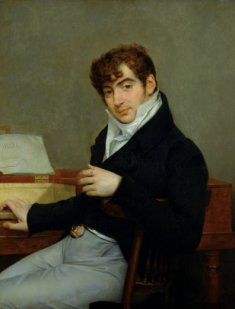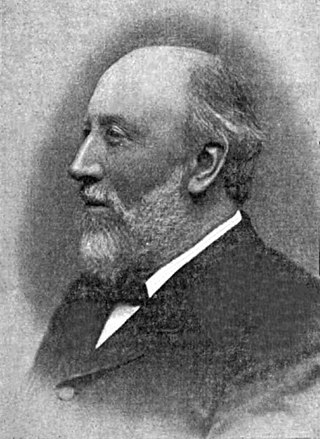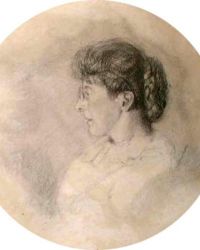
Walter Hamor Piston, Jr., was an American composer of classical music, music theorist, and professor of music at Harvard University.
In music, variation is a formal technique where material is repeated in an altered form. The changes may involve melody, rhythm, harmony, counterpoint, timbre, orchestration or any combination of these.

James Healey Willan was an Anglo-Canadian organist and composer. He composed more than 800 works including operas, symphonies, chamber music, a concerto, and pieces for band, orchestra, organ, and piano. He is best known for his church music.

Sir George Alexander Macfarren was an English composer and musicologist.

Philip Cipriani Hambly Potter was an English musician. He was a composer, pianist, conductor and teacher. After an early career as a performer and composer, he was a teacher in the Royal Academy of Music in London and was its principal from 1832 to 1859.
Adam Von Ahnen Carse was an English composer, academic, music writer and editor, remembered today for his studies on the history of instruments and the orchestra, and for his educational music. His collection of around 350 antique wind instruments is now in the Horniman Museum.
Marcel Poot was a Belgian composer, professor, and musician.

Pierre-Joseph-Guillaume Zimmerman, known as Pierre Zimmermann and Joseph Zimmermann, was a French pianist, composer, and music teacher.

William Foster Apthorp was a United States writer, drama and music critic, editor and musician.
William Henry Bell, known largely by his initials, W H Bell, was an English composer, conductor and lecturer.
(Charles) Stewart Macpherson was an English musician of Scottish descent. He was born in Liverpool, and studied at the Royal Academy of Music in London. He was a student of the composer Walter Cecil Macfarren. In 1887, he joined the RAM staff, and taught harmony and composition. He founded the Music Teachers' Association in 1908, and was its chairman until 1923. From 1925 to 1927, he was dean of the Faculty of Music in the University of London. His notable students included violinist John Waterhouse and violinist and composer Susan Spain-Dunk.

John Francis Barnett was an English composer, pianist and teacher.

Alicia Adélaide Needham was an Irish composer of songs and ballads. A committed Suffragette, she was the first woman to conduct at the Royal Albert Hall, London, and the first female president of the National Eisteddfod of Wales.
Oliveria Louisa Prescott was an English writer and composer.
The American Institute of Applied Music was a music school based in New York City. The Institute was incorporated in 1900 as an amalgamation (merger) of the following educational institutions:
- The Metropolitan College of Music
- The Metropolitan Conservatory of Music
- The Synthetic Piano School, and
- The American Institute of Normal Methods

Walter Cecil Macfarren was an English pianist, composer and conductor, and a teacher at the Royal Academy of Music. His students included Tobias Matthay and Henry Wood.
John Lancelot Agard Bramhall Davenport was an English critic and book reviewer who wrote for, amongst other publications, The Observer and The Spectator. He was a mentor to the critic Nora Sayre.
Paul Robert Marcel Fauchet was a French composer and organist.
This is a summary of 1905 in music in the United Kingdom.

Ethel Mary Boyce was an English composer, pianist and teacher.










